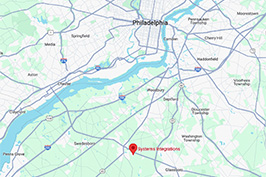Critical Security Vulnerabilities Discovered During Healthcare Facility Assessment
During a recent facility assessment for a prospective managed IT and security client—a long-term care and rehabilitation medical center—our team identified several alarming cybersecurity risks that demand immediate attention. Healthcare facilities face heightened security requirements due to HIPAA compliance obligations and the sensitive nature of protected health information (PHI).
Key Findings:
- Legacy Network Infrastructure: The facility operates on approximately 20-year-old Cisco Catalyst switches that have reached end-of-life status. These devices no longer receive security patches or firmware updates, creating exploitable entry points for cybercriminals targeting healthcare data.
- Decommissioned Equipment Risk: A full rack of old NVR servers remains powered and connected to the network despite being out of production. These systems are running Windows XP, an operating system that Microsoft discontinued support for over a decade ago. In a healthcare environment, this represents a critical HIPAA compliance violation and security gap, as these unpatched systems can serve as launching points for ransomware attacks targeting patient records.
- Healthcare Compliance Concerns: The presence of obsolete, unmonitored equipment on the active network indicates insufficient network segmentation and asset management protocols—particularly concerning in a medical facility where patient privacy and data security are paramount.
Immediate Recommendations:
- Emergency Decommissioning: Immediately power down and disconnect all obsolete NVR servers from the network
- Infrastructure Modernization: Replace end-of-life network switches with current, compliant equipment
- Healthcare Security Assessment: Conduct comprehensive vulnerability scanning and HIPAA compliance audit
- Asset Inventory: Implement proper IT asset lifecycle management with healthcare security standards
These vulnerabilities represent serious HIPAA compliance risks and potential attack vectors. Healthcare facilities with outdated infrastructure are prime targets for ransomware attacks, with patient care disruption and massive regulatory penalties at stake.
Systems Integrations specializes in cybersecurity-focused Integrated Security technologies and IT infrastructure for healthcare environments and can provide immediate HIPAA-compliant remediation services.
Don’t wait for a security breach to act. Contact Systems Integrations today at (856) 417-3787 for an immediate security assessment and remediation plan. Your patients’ data and your facility’s reputation depend on it.


